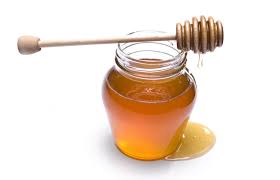
Breaking News
 Windows 11 QEMU/KVM Installation Guide in Linux Including TPM and Secure Boot
Windows 11 QEMU/KVM Installation Guide in Linux Including TPM and Secure Boot
 Silver: US Mint-Delays and Costco Limits Surface
Silver: US Mint-Delays and Costco Limits Surface
 Boots on the Ground...The news is getting worse so keep prepping.
Boots on the Ground...The news is getting worse so keep prepping.
 O'Keefe Media Group: Secret Service Agent Assigned to Vance Leaks Sensitive Information
O'Keefe Media Group: Secret Service Agent Assigned to Vance Leaks Sensitive Information
Top Tech News
 Superheat Unveils the H1: A Revolutionary Bitcoin-Mining Water Heater at CES 2026
Superheat Unveils the H1: A Revolutionary Bitcoin-Mining Water Heater at CES 2026
 World's most powerful hypergravity machine is 1,900X stronger than Earth
World's most powerful hypergravity machine is 1,900X stronger than Earth
 New battery idea gets lots of power out of unusual sulfur chemistry
New battery idea gets lots of power out of unusual sulfur chemistry
 Anti-Aging Drug Regrows Knee Cartilage in Major Breakthrough That Could End Knee Replacements
Anti-Aging Drug Regrows Knee Cartilage in Major Breakthrough That Could End Knee Replacements
 Scientists say recent advances in Quantum Entanglement...
Scientists say recent advances in Quantum Entanglement...
 Solid-State Batteries Are In 'Trailblazer' Mode. What's Holding Them Up?
Solid-State Batteries Are In 'Trailblazer' Mode. What's Holding Them Up?
 US Farmers Began Using Chemical Fertilizer After WW2. Comfrey Is a Natural Super Fertilizer
US Farmers Began Using Chemical Fertilizer After WW2. Comfrey Is a Natural Super Fertilizer
 Kawasaki's four-legged robot-horse vehicle is going into production
Kawasaki's four-legged robot-horse vehicle is going into production
 The First Production All-Solid-State Battery Is Here, And It Promises 5-Minute Charging
The First Production All-Solid-State Battery Is Here, And It Promises 5-Minute Charging
Science again confirms the efficacy of ancient medicine: The antibacterial properties of honey...

To many, honey is more than just a natural sweetener: it's a source of valuable medicine. A revered folk cure, honey has been used for a variety of medicinal purposes throughout the centuries, and now, science has confirmed that this tasty food may be all that stands between us and the scourge of antibiotic-resistant infections like MRSA.
MRSA, or methicillin-resistant Staphylococcus aureus, is a serious bacterial infection known for its resistance against treatment with antibiotics – making the infection more than difficult for conventional medicine to reconcile. As Healthline.com explains, MRSA infections can easily be contracted via cuts or other skin abrasions. Because of how highly contagious MRSA is, it can be spread through contact with an infected person.
Hospital-acquired MRSA is particularly dangerous and is reportedly more likely to come with serious complications like pneumonia or sepsis. Hospital-acquired MRSA is known for its ability to create a life-threatening infection – and for its potential to spread to others.
Antibiotics resistance in general has been regarded as one of the biggest threats to modern society. Recent estimates have suggested that by the year 2050, some 10 million people will face an antibiotic-resistant infection each year. Experts believe antibiotic-resistant superbugs will soon pose a greater threat to human health than cancer.
But a recent study, led by researchers from the University of Mascara in Algeria, has shown that honey may be able to help. The researchers say that honey can be an effective tool against MRSA infections, and perhaps, other infectious diseases as well.
Using different kinds of honey from a number of Algerian territories, scientists were able to create polyphenol extracts that were then used against MRSA samples in lab testing. The team found that all four of the polyphenol extracts were effective against MRSA, though with varying degrees of efficacy. The honey extract from Jijel, Algeria was found to have the highest inhibitory effect overall.
The research team declared their conclusion:
The study of the antibacterial effect of honey extracts allowed us to present an alternative way against the infectious diseases.

 Storage doesn't get much cheaper than this
Storage doesn't get much cheaper than this

